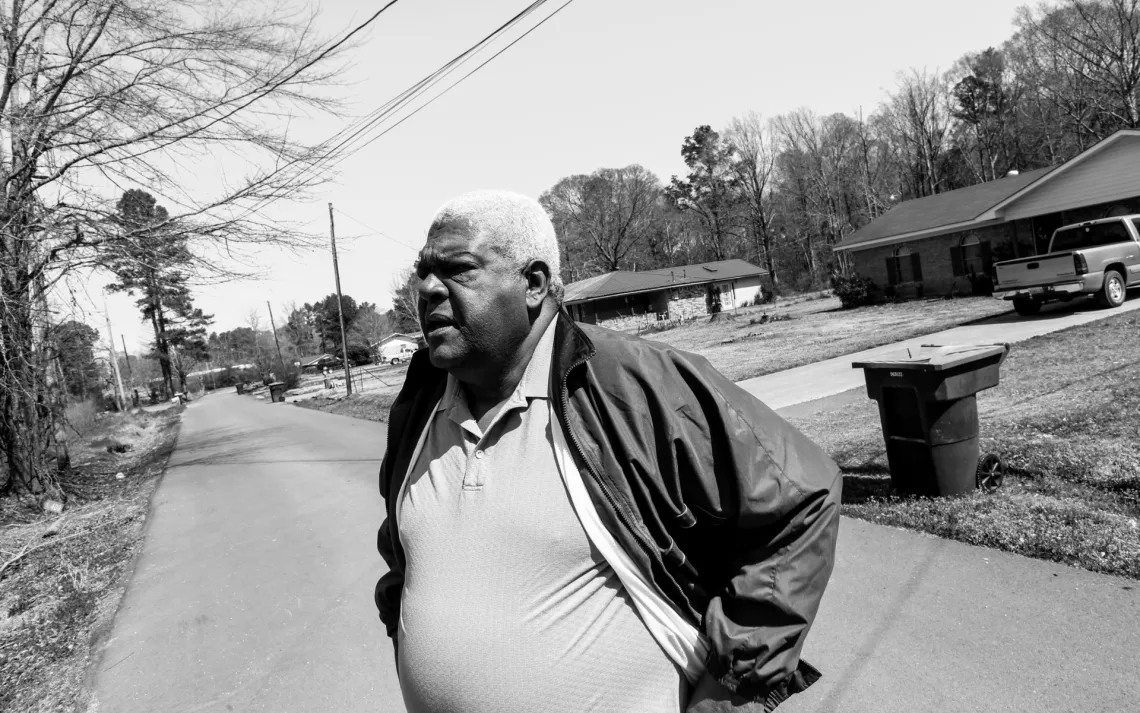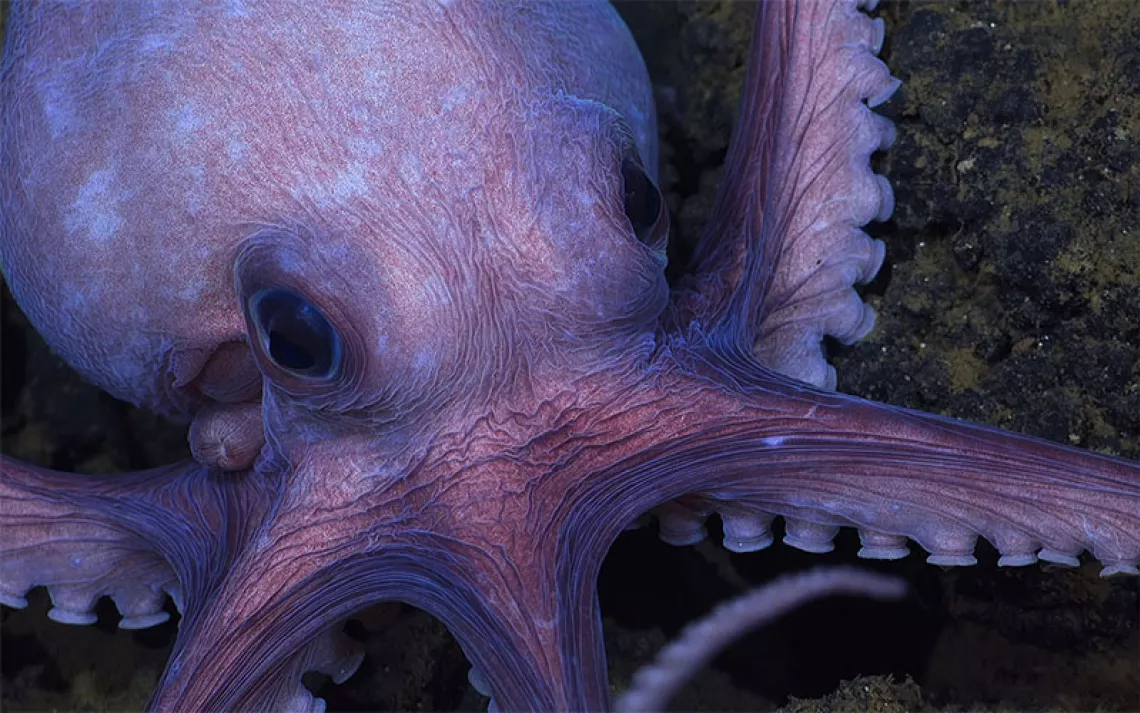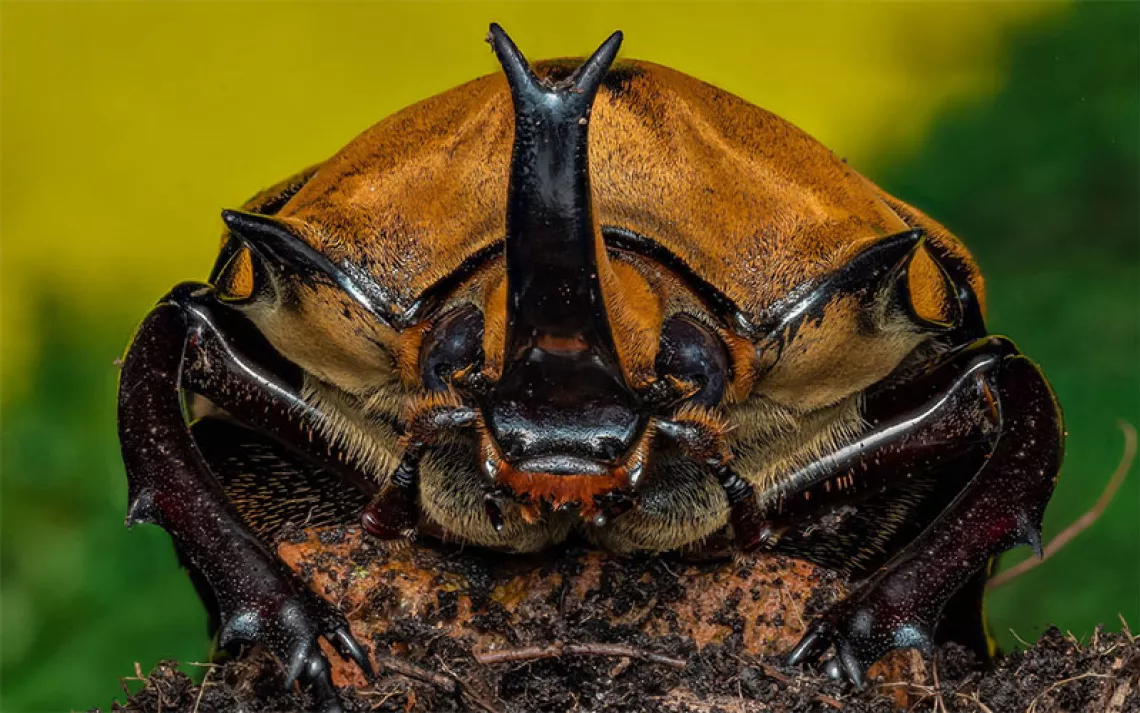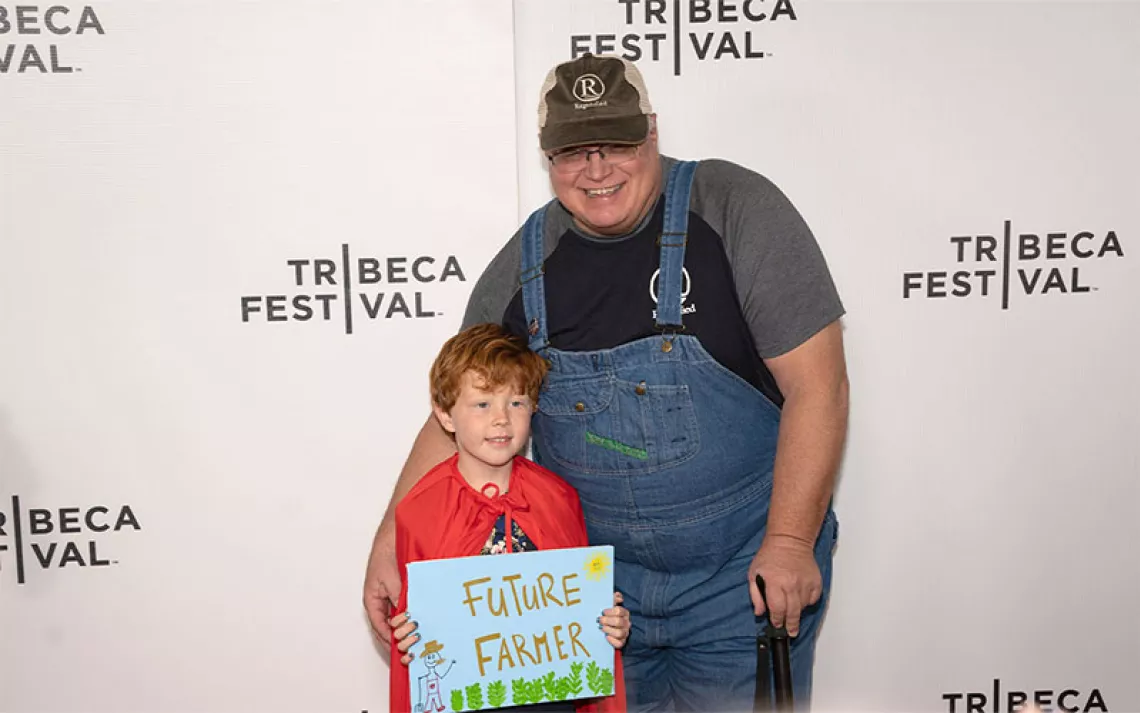Bad Company
The documentary makers behind Company Town talk about pollution, whistle-blowing, and environmental injustice

Pastor David Bouie, featured in Company Town | Photo by Nicolaus Czarnecki, courtesy of Penn Road Productions, Inc.
What happens when your employer, the lifeblood of your town, is also poisoning your community?
Such is the question plaguing the remote, working-class town of Crossett, Arkansas. In 1962, Georgia-Pacific, a paper products company, bought Crossett’s lumber mill and turned it into a prosperous paper and chemical plant, churning out products like Brawny Paper Towels and Quilted Northern Tissue. Ever since, production has soared. Today, the Koch brothers own Georgia-Pacific and about 1,200 of Crossett’s 5,200 residents work for the mill, which generates some $6.7 million in annual tax revenue. The plant also produces upwards of 1.5 million pounds of toxic chemical emissions each year—including known carcinogens formaldehyde, dioxin, acetaldehyde, and chloroform.
On one block in town, 11 citizens from 15 homes have died of cancer in recent years. A nearby stream smells so strongly of hydrogen sulfide it’s known as “Stink Creek.” What’s more, the pollution, and the cancer incidences, disproportionately affect Crossett’s African American community. This all is according to the many residents and environmental experts featured in Company Town, a documentary that debuted at last summer’s L.A. Film Festival, earning “Notable” status. It's poised to hit theaters in 2017.
Shot over more than four years, this investigative film examines a town where a company has been issuing checks to quiet its citizens’ concerns (with white residents fetching higher payouts) since the 1990s, and where the death toll is mounting. It’s a film about citizens insisting on answers for why breathing apparatuses abound, and why young girls are developing ovarian tumors. David Bouie, a charismatic black pastor galvanizing his Crossett neighbors to fight back against the Koch brothers, is the central figure in the film, alongside the Erin Brockovich-reminiscent Cheryl Slavant—a riverkeeper who’s spent years collecting health surveys and testing Crossett’s air and water. And then there’s a former plant safety coordinator, portrayed on screen only as a shadowy silhouette, who blows the whistle on Georgia-Pacific’s reckless, and illegal, dumping practices. He says he was asked to hide ash waste in Crossett’s dirt fields and to dump “big plastic tanks” of untreated liquid waste. “My doctor told me to get out of there”—he’d developed severe respiratory problems—“but I needed that job.”
In 2012, Robert Greenwald released Koch Brothers Exposed, 10 minutes of which depict the toll of the plant’s pollution on employees and Crossett residents. Natalie Kottke-Masocco helped the Los Angeles documentary maker produce the film and talk with key players such as Pastor Bouie. “I was really horrified by the situation, and the subjects became friends and family to me,” says Kottke-Masocco, a former employee of Greenwald’s who went on to direct Company Town. “I knew there was a feature-length documentary here.”
She dropped her other projects, got friend and codirector Erica Sardarian on board, and launched an Indiegogo campaign to crowd-raise funds to transport the crew back to Crossett. Sundance TV got wind of the campaign and helped to promote the project, touting it as “a film that could save lives.” The result is a gripping film documenting Crossett citizens’ plight, their limited political and economic leverage, and their often-disheartening campaign to get the EPA to do its job and protect their water and air. The film is also peppered with appearances and insights from chemists, environmental scientists, and star-power players like investigative journalist Charles Lewis and CNN’s Van Jones, former environmental advisor to President Obama.
In a candid conversation, Kottke-Masocco and Sardarian revealed more about the journey behind their film, the methods to their muckraking, and the tangible results they’re starting to see.
—Katie O’Reilly
Sierra: What’s the overarching objective of the film?
Kottke-Masocco: We set out to add Crossett to the conversation about towns being polluted by big businesses, and to highlight the fact that environmental injustice is happening across the nation, and that it’s being neglected by the government. Which is why we also set out to expose the EPA—to show what their involvement on the ground so often looks like. We see EPA officials denying evidence and facts and failing to investigate citizens’ concerns and claims. We also see local regulators blatantly ignoring contamination. With the film, we sought to put pressure on the EPA and expose the wrongdoing of Georgia-Pacific and the Koch brothers—to show how the measurements of their impacts are mounting.
Sierra: It seems like the pressure on them is mounting, too.
Kottke-Masocco: Yes, the good news is, so many residents are vocalizing and organizing. Recently, Georgia-Pacific installed a hydrogen sulfide monitor in the backyard of Mr. Bouie’s house—he’s the main subject of the film and the president of Crossett Concerned Citizens for Environmental Justice. They’re touting it as a great effort they’re putting forth—but it’s the only one in all of Crossett! It’s a good step, but it’s not enough; it’s not a solution. What’s more, it’s only impacting one resident—and it’s seemingly intended to quiet him. They’re scared. It’s not just filmmakers—there are outside voices coming together to expose this as a result of publicity surrounding the film.
Sardarian: Also,the Tulane Environmental Law Clinic has filed a complaint against Arkansas’s Department of Environmental Quality and recently filed that with the federal EPA—they’re going to do an investigation. They filed a complaint under the Civil Rights Act claiming discrimination, as huge amounts of African Americans in Crossett are being disproportionately affected. Tulane’s other concern is the Clean Water Act violation.
Sierra: How did you get citizens of Crossett to open up to you?
Kottke-Massoco: In 2011, when I started work on Koch Brothers Exposed, it was really difficult to get anyone to come forward and talk. Pastor Bouie—who ends up being the main subject of the film and whose family is like family to me—wouldn’t even speak to me over the phone. He said, “I don’t know you from Adam,” but a couple of days later I flew there and knocked on his door and met with him, and he became my friend and my family, and that was sort of the genesis of the film. At that time, the fear in Crossett was palpable. People were so scared to speak out. But, as Martin Luther King, Jr. and Mahatma Gandhi have shown, it only takes one voice. Pastor Bouie has been that voice. It happened pretty organically, but it took a lot of time, because there was so much fear in that community. I think the outside interests and national attention encouraged more people to come forward, but a lot of people are still scared. There’s only one employer for you and your relatives in a small town—that’s a very real situation economically. So, what they’re doing right now in fighting so hard is a huge challenge, and they’re incredibly brave.
Sardarian: You could really feel people’s fear when we first arrived. This is a small company town, and we’re outsiders in the South. Everyone was sweet and kind and wonderful, but it was clear that we were outsiders. Eventually, it became more clear to us that people wanted a voice, and it became clear to them that we wanted to tell their story.
Sierra: Did you ever fear for your own health in the course of this work?
Sardarian: It was definitely a concern, being out there shooting for hours on end. Being so close to the mill, you could just feel the hydrogen sulfide on your face. It was an overpowering, rotten-egg smell. The second you enter Crossett, you smell that smell; you feel the pollution on your face. It’s something I never experienced in my life—and when the EPA is in town, they clean it up, so the plumes are a little less overpowering. We always made sure to drink bottled water.
Sierra: Have you experienced any backlash?
Kottke-Masocco: When we were wrapping up filming, Georgia-Pacific retaliated by taking a full-page ad out in the back of Crossett’s newspaper, with a headline about how California filmmakers were infiltrating with some meeting for environmental justice, when in fact the EPA and the citizens had initiated said meeting. They’re trying to twist the story away from what’s actually happening and frame it as a political agenda, a “California agenda.” Also, the president of the Crossett Chamber of Commerce, Tim Toler, has slammed our film in the paper.
Sierra: Were you inspired by any other investigative documentaries?
Kottke-Masocco: I love Barbara Koppel’s Harlan County, which documents a coal miners’ strike against a major company in the South, back in the 1970s. It’s the story of this small town’s struggle for worker’s rights and activism, and it made for such a wonderful portrait of what it takes from the inside of a community to affect world change. I originally tried to model Company Town after it—to portray the psychology and politics of a company town and show what it takes for a small town to go up against their only employer and their government. Laura Poitras and Lucy Walker are also fantastic investigative filmmakers.
Sardarian: As a film that took on a huge corporation and blew the whistle, I was really inspired by Blackfish, a film about SeaWorld.
Sierra: Obviously, the Crossett situation isn’t resolved. The community remains victimized; David is still going up against Goliath. How did you know where to end your project and where to take things from here?
Kottke-Masocco: I knew when we started the filmmaking process that there wasn’t really an “end day” in sight—we wanted to cover the town and document the investigation as it was unfolding. It was a pretty intuitive process; we started with documenting the testimonials. Our whistle-blower took a few years to get. We never had a sense anything was ending. You got to the point where we knew we could document it forever, but there was no clear solution. There’s a lot more work to do, but we wanted to finish the film and felt it was at a place where we had enough evidence to present a compelling case.
Unfortunately, the Koch brothers have not addressed the issue, nor have they stopped pumping toxic chemicals into Crossett’s water. We’ve contacted Koch Industries so many times trying to get an interview, but our message and emails have received no sort of response at all. I’m hoping that, with continued media coverage and screenings, the Kochs will have to respond to the problem—that’s something that really needs to happen.
Sierra: The Koch brothers-owned facility you highlight manufactures common household products like Brawny Paper Towels, Quilted Northern Tissue, and Dixie Cups. Has this filmmaking process affected you as a consumer?
Sardarian: They make the biggest products you use in your household! I’m much more mindful now. I’ll be in grocery store aisles, and I’ll look at what people are purchasing—this stuff is always on sale. They’re less expensive than the other brands—and there was one time I pointed it out to someone and she opted for a different toilet paper [laughs]. It’s why I downloaded this great app called Buycott. You can go to the grocery store and use it to scan barcodes, and it’ll tell you exactly where things come from, chemicals-wise.
Sierra: What course of action can Company Town’s concerned viewers take?
Kottke-Masocco: We’d love viewers to stay up to date through our social channels and subscribe to our updates, and we’ll be launching a petition soon. This isn’t just a documentary; it’s a social action campaign.
Sardarian: And we need to mobilize, because this is happening all across America—not only in Flint, Michigan; Porter Ranch, California. But the more you talk to environmentalists and community leaders, the more you start realizing, Wow, this is happening everywhere; it’s just being covered up. It’s a bigger story than just we can tell.
 The Magazine of The Sierra Club
The Magazine of The Sierra Club







